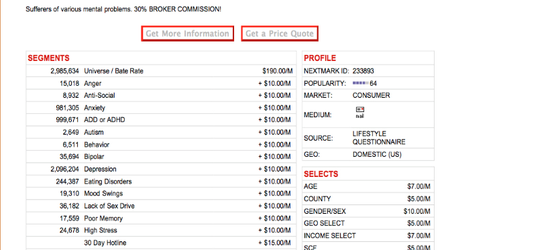San Diego -- 15 November, 2013: The General Accounting Office (GAO) issued its long-awaited report on data brokers, INFORMATION RESELLERS: Consumer Privacy Framework Needs to Reflect Changes in Technology and the Marketplace. The report discusses key World Privacy Forum testimony and research. "We are pleased with the GAO report," said Pam Dixon, Executive Director of the World Privacy Forum. "In particular, we are glad the GAO highlighted our work calling for a stop to the selling of people's sensitive medical and health information for marketing purposes. This is a practice that is causing great harm, the GAO made the right call in pointing out new controls are needed." This press release includes links to the GAO report, to Dixon's Congressional testimony, and to the WPF report discussed by the GAO.


